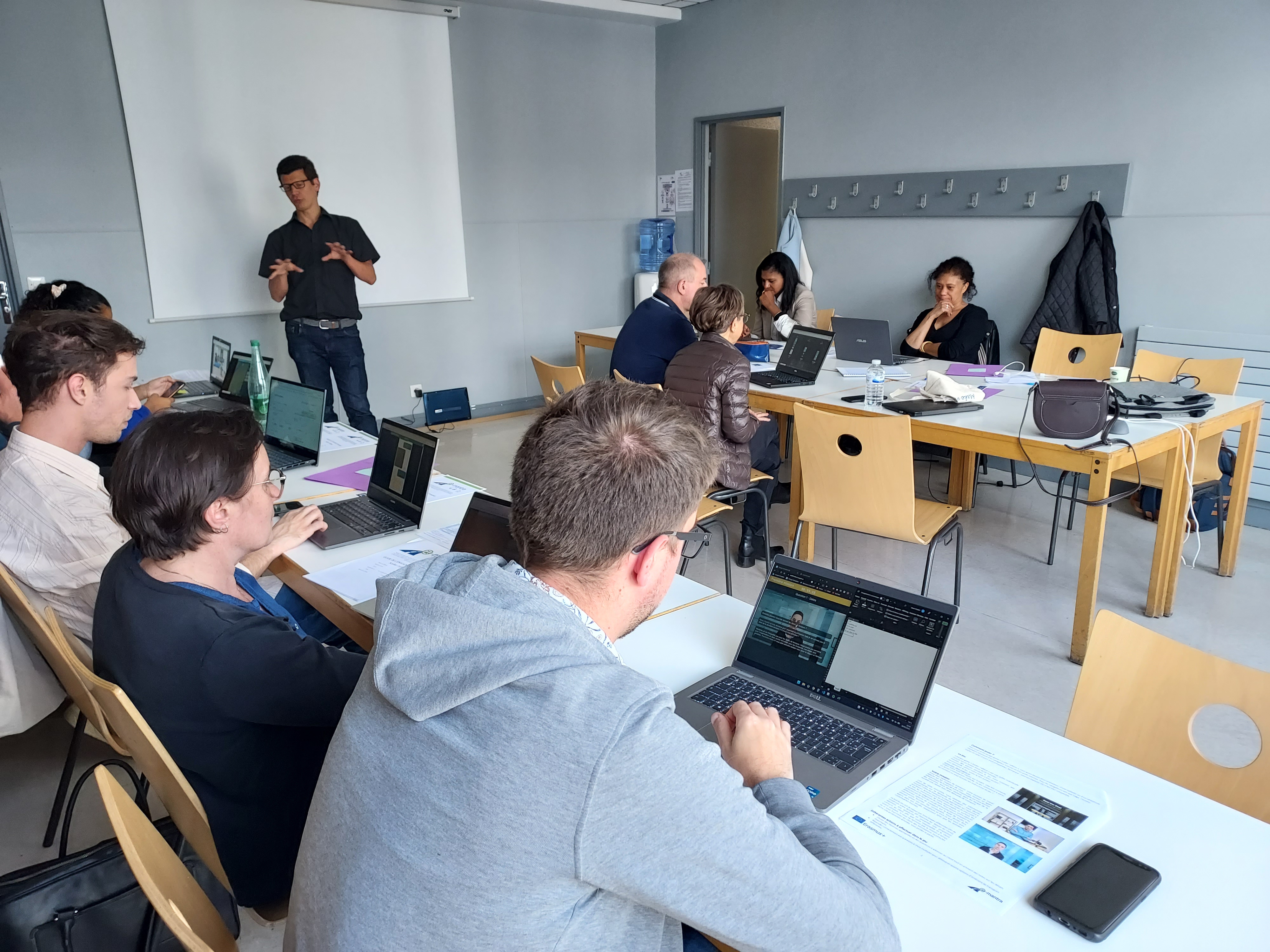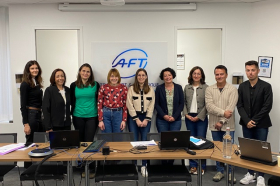Co-funded by the European programme Erasmus +, the aim of the e-ManTRA project was to equip EQF level 5 transport manager training courses with innovative digital tools, training materials and teaching methods for hybrid and/or distance teaching, e-learning, continuous student monitoring and assessment of learning outcomes.
After two years of intensive work, the project came to an end on 16 May with a final conference held in Paris. This conference was an opportunity for the project partners to present the final tools to French stakeholders representing the Transport training sector and experts in the field of digitisation.
In particular, the following were presented:
- A guide to innovative teaching methods for setting up inclusive distance or blended learning courses for teachers
- A guide to help transport and logistics learners adapt to online/distance learning
- A virtual platform to encourage group work
- An educational card game on European Social Regulations
- An immersive escape game at the heart of transport operations
- Recommendations for the various stakeholders to encourage the implementation of the tools developed and the digitalisation of training in general.
All the games are accompanied by guides (downloadable below).
The results of the project were put into perspective with other sectors through presentations and testimonials from:
- Joel Ruiz, President of the FFFOD/Forum des acteurs de la formation digitale on the hybridization of training courses: "Where are we today?
- Pascal Miché from CCCA-BTP on the role and uses of immersive training methods in construction and public works training.
- Louise Boissenin and Ekaterina Lavocat from ANFA on the European iDivet project
- Regina Stober from DEKRA on the European GamingDRV project.
Here's a look back at the morning:
Final conference - e-ManTRA
Following these presentations and testimonials, the participants were able to test the various digital resources developed in small groups.

They all showed great interest in the tools and expressed a desire to see them incorporated into their training programmes

